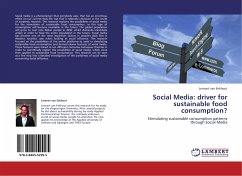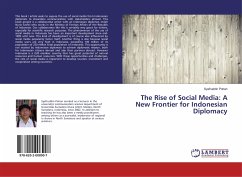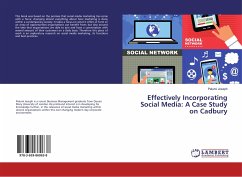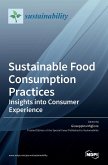Social media is a phenomenon that everybody uses, that has an enormous effect on our current daily life, but that is relatively unknown in the world of academic research. This research explores the possibilities of social media for the stimulation of sustainable food consumption, as this type of consumption will become inevitable in the future. The global population will grow to over nine billion people in 2050, which demands immediate action in order to feed the entire population in the future. Social media has become one of the most important factors in people's daily lifes in Western societies, also when looking at social influence. This research focused on the possibilities of the online platforms to assist in stimulating sustainable food consumption and derived eleven features of social media. These features were linked to ten different consumer behaviour theories in order to scientifically explain the possibilities of social media, which were then applied to sustainable food consumption. This research can be seen as a first step into a detailed investigation of the usefulness of social media concerning social influence.
Hinweis: Dieser Artikel kann nur an eine deutsche Lieferadresse ausgeliefert werden.
Hinweis: Dieser Artikel kann nur an eine deutsche Lieferadresse ausgeliefert werden.








